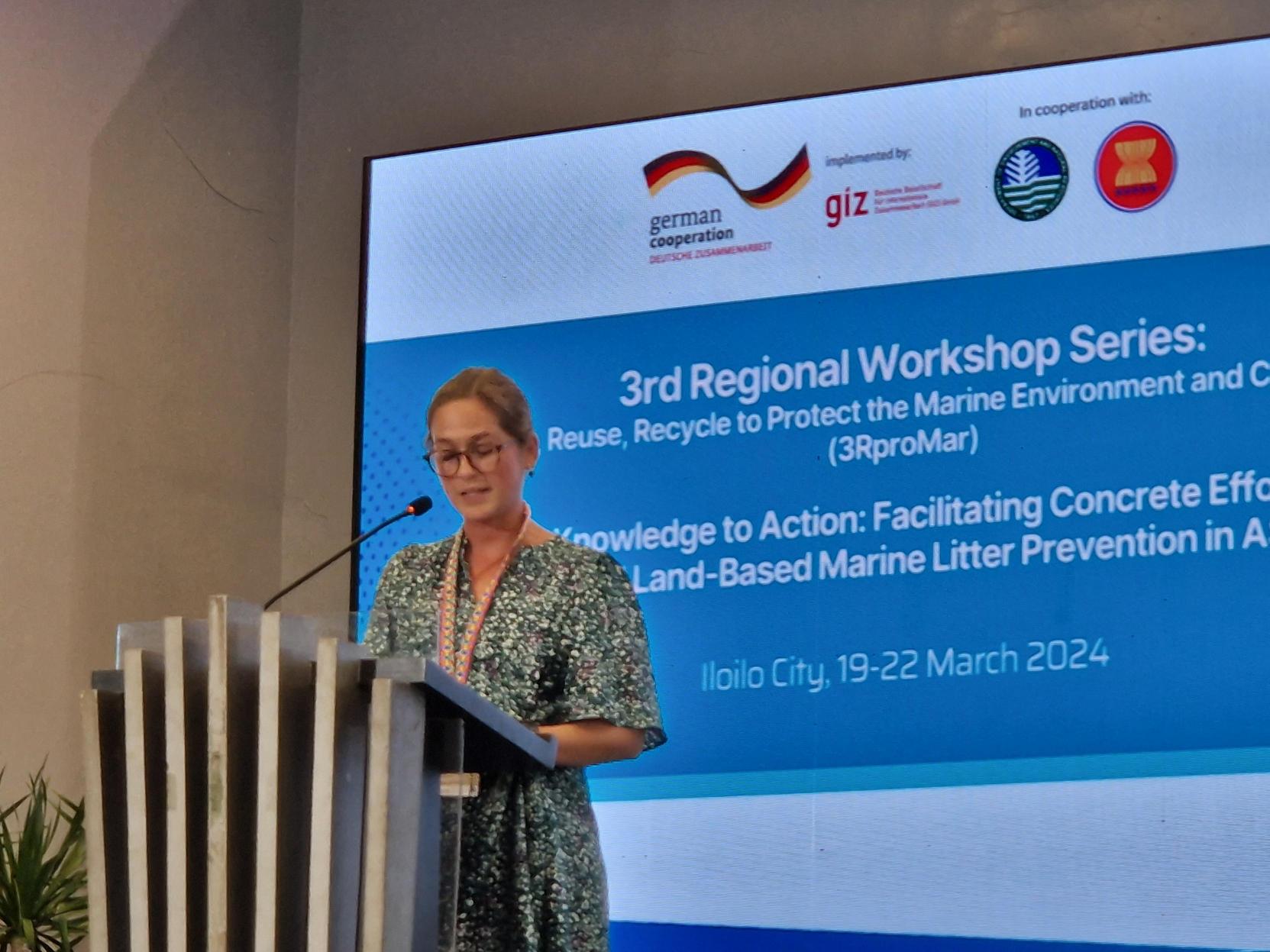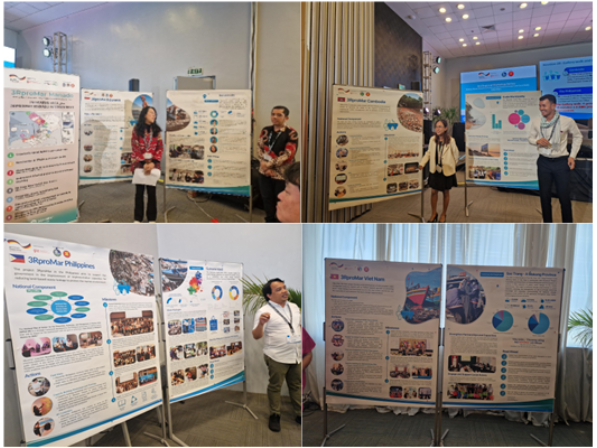IKHAPP at the 3rd Regional 3RproMar Workshop in Iloilo City

Attendees of the 3RproMar forum in Iloilo City, the Philippines. Photo: ©GIZ/3RproMar
IKHAPP at the 3RproMar Knowledge Partnership for Marine Litter Prevention
IKHAPP participated at the 3RproMar 3rd Regional Workshop Series from March 19-22, 2024, in Iloilo City, Philippines, hosted in partnership with the ASEAN Secretariat and the Philippine Department of Environment and Natural Resources (DENR). This event was organized by the Deutsche Gesellschaft für Internationale Zusammenarbeit (GIZ) GmbH on behalf of the German Federal Ministry for Economic Cooperation and Development (BMZ). The theme was “From Knowledge to Action: Facilitating Concrete Efforts for Enhanced Land-Based Marine Litter Prevention in ASEAN,” and the event gathered over 100 participants from ASEAN Member States (AMS) and various international bodies. Together, they collaborated on strategies to tackle plastic waste and enhance land-based marine litter prevention in ASEAN countries, particularly addressing challenges and sharing best practices at local, regional, and national levels.
Some highlights and snippets from the week are outlined below.
Collaboration in the Regional Knowledge Hub
The first session centered on the Regional Knowledge Hub for Marine Litter Prevention in ASEAN, with experts from Asian Institute of Technology (AIT), Know Waste Knowledge (KWK) Platform, Economic Research Institute for ASEAN and East Asia (ERIA), Regional Knowledge Centre for Marine Plastic Debris (RKC-MPD), Norwegian Institute for Water Research (NIVA), and Ministry of Environment, Cambodia. Diya Chakravorty (NIVA) presented IKHAPP during a panel discussion in session 1, sharing the platform’s contributions to the region, such as key milestones, successes, and interactive tools (INCA-Microplastics). The discussion also focused on how to enhance engagement and improve contributions to the Hub, including methods to facilitate effective knowledge exchange among AMS and relevant working groups.

Panel discussion with moderator Federick Caselitz (GIZ) and panelists Laska Sophal (Ministry of Environment, Cambodia), Reo Kawamura (ERIA), Diya Chakravorty (NIVA) and Bishal Bahari (AIT). Photo: Emmy Nøklebye.
International-legally Binding Instrument on Plastic Pollution
Session 2 of the workshop addressed the International-legally Binding Instrument (ILBI) on Plastic Pollution, with insights from NIVA, the General Directorate of Nature Protected Area, Ministry of Environment, Cambodia, and Yunus Environment Hub. Emmy Nøklebye (NIVA) presented the global plastics treaty, including options for reducing plastic pollution across the plastics lifecycle in the revised zero draft of the plastics treaty text, which will be the basis for negotiations at INC-4.
Highlights included the infographic outlining the journey towards ending plastic pollution, outlining key developments and milestones of the Intergovernmental Negotiating Committee (INC). The discussion also emphasized the need for collective action, knowledge sharing, and collaborations across AMS to ensure the outcomes of the negotiations respond to local and regional needs.
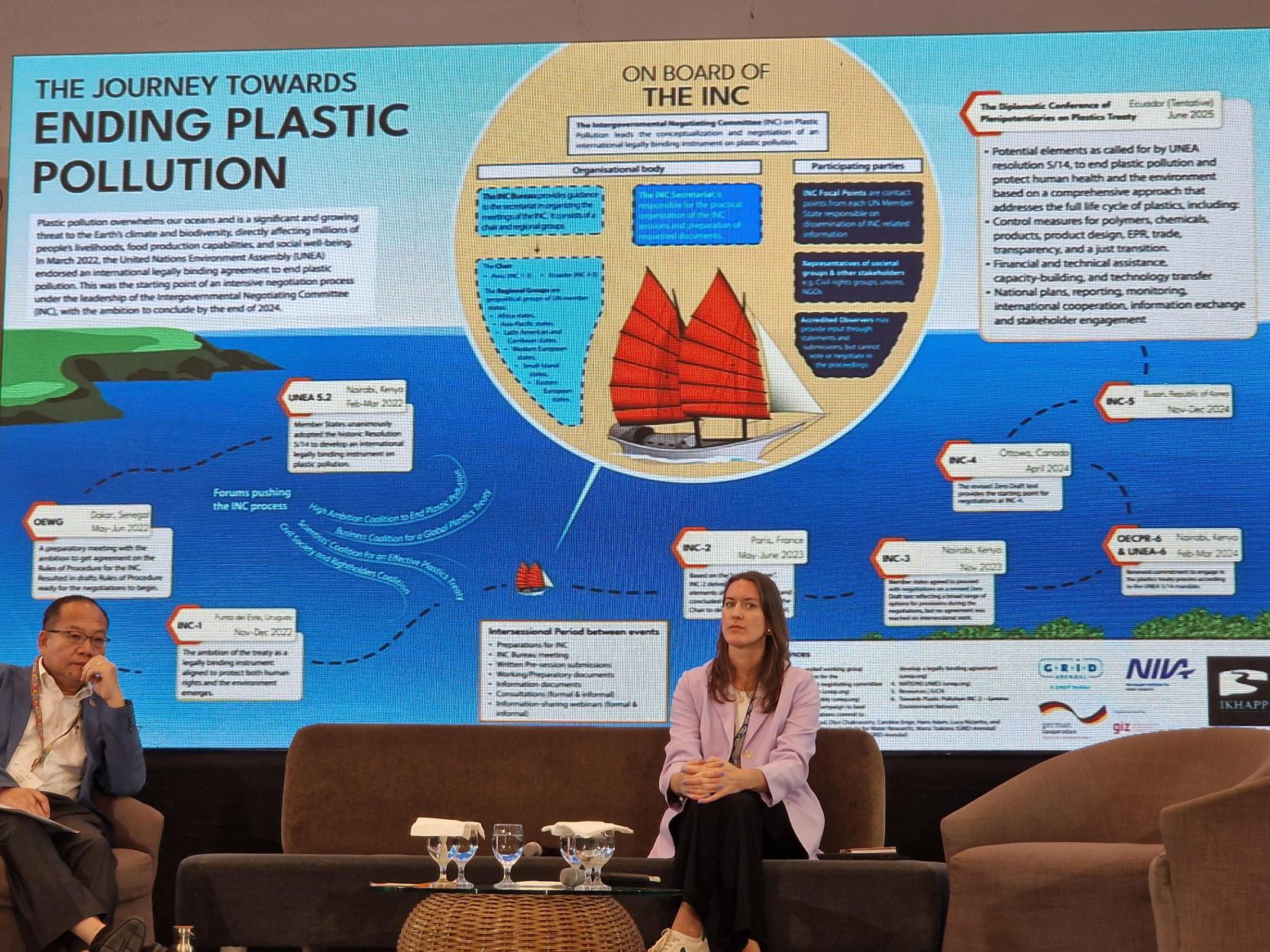
Infographic displayed at the event. Session 2 moderator Dr. Srey Sunleang (Ministry of Environment, Cambodia) and speaker Christina Jäger (Yunus Environment Hub). Photo: Diya Chakravorty.
The complexity of plastic pollution across lifecycles and its cultural and operational challenges faced by ASEAN countries was also presented by Christina Jäger (Yunus Environment Hub). Key recommendations included the necessity for upskilling and reskilling to prepare for new economic demands, fostering inclusive decision-making processes, and enhancing environmental protection measures to effectively combat plastic pollution and foster sustainability across ASEAN countries.
Achievements and initiatives for marine litter prevention in ASEAN
The third session of the workshop highlighted national efforts from Cambodia, Indonesia, the Philippines, and Vietnam in tackling marine litter and promoting circular economy strategies through a series of poster presentations. Cambodia’s initiatives included environmental education that fostered behavioral change through eco-school initiatives, aiming to engage youth in more environmentally friendly behaviors. Indonesia’s approach involved a roadmap to reduce waste by producers by 30% by the year 2025, designing products for sustainability and going beyond Extended Producer Responsibility (EPR) requirements.
The Philippines highlighted implementing country policies that tackle plastic waste leakage. This included EPR and the development of more environmentally sustainable cities, alongside a ban on unnecessary single-use plastics with the goal of achieving zero waste in Philippine waters by the year 2040. Vietnam’s presentation covered its maritime economy strategy that emphasized raising awareness through pillars of improved policies, legislation, technology, and awareness.
Both EPR and behavioral change were important topics discussed in parallel sessions on Day 3 of the workshop, including expert presentations and discussions on effective ways to drive behavioral change, and implement EPR schemes in AMS.
Microplastics in ASEAN
Session 4 of the workshop focused on the challenge of microplastics in ASEAN countries including regional actions to tackle microplastic pollution, featuring presentations from NIVA, the DENR Ecosystems Research and Development Bureau, the Technical University of Denmark, and the Mekong River Commission. A key contribution from IKHAPP was the presentation of the regional baseline study on microplastics by NIVA expert France Collard (NIVA).
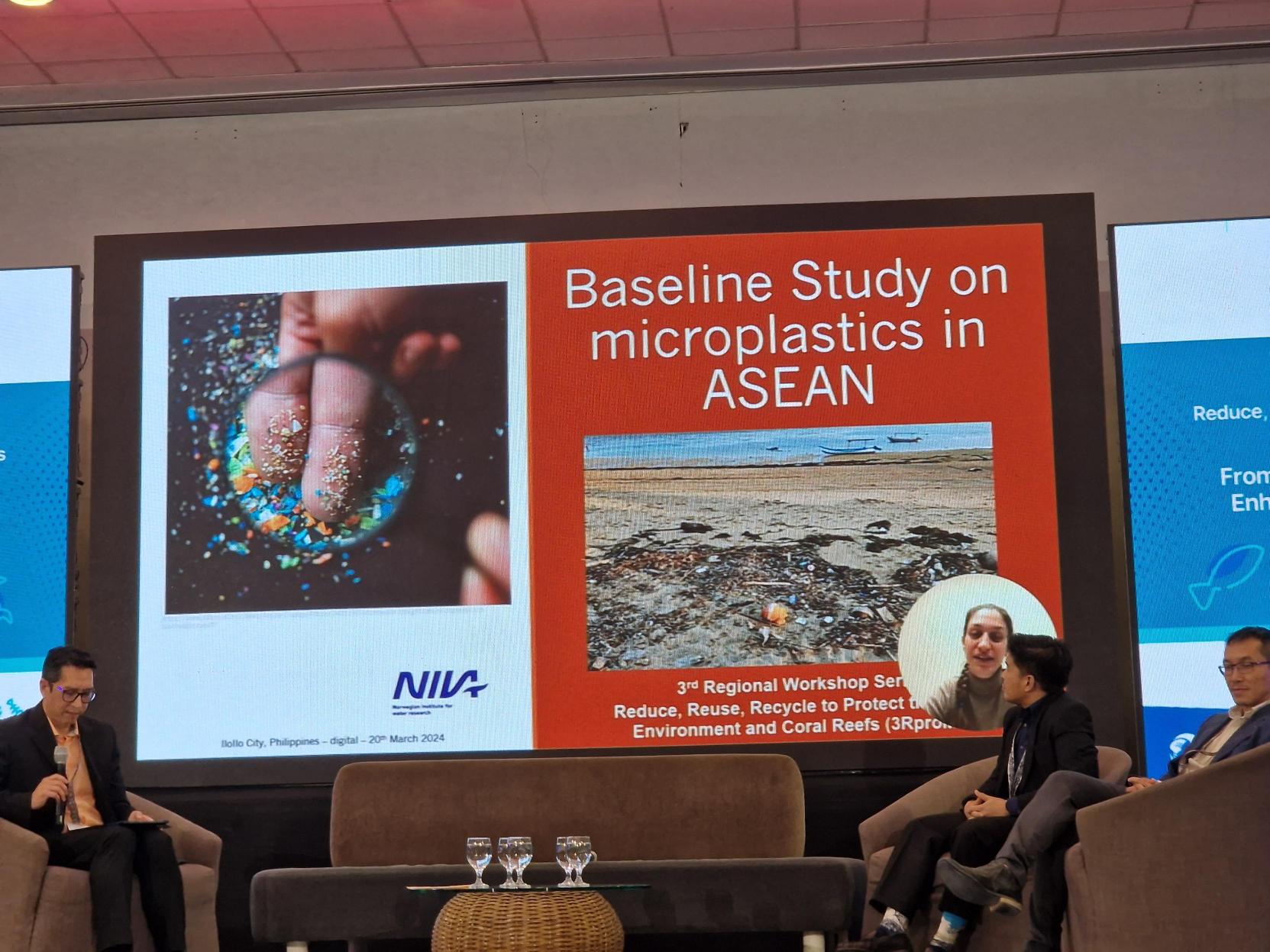
Remote presentation by France Collard (NIVA). Moderator Phong Giang (GIZ) and speakers Jon Alfonso P. Horvidalla (DENR) and Kongmeng Ly (Mekong River Commission). Photo: Diya Chakravorty.
Waste management and circular economy
Field visits were organized to sites within Iloilo City, showcasing local waste management and circular economy programs, including stops at a material recovery facility, Waste-to-energy (WtE) warehouse for a cement factory and a mobile sewage treatment plant. The field trip on Day 4 took delegates to Guimaras Island, where they visited Piagao Island, Taklong Island National Marine Reserve, and learned about plastic recycling and the Barangay Collection System.
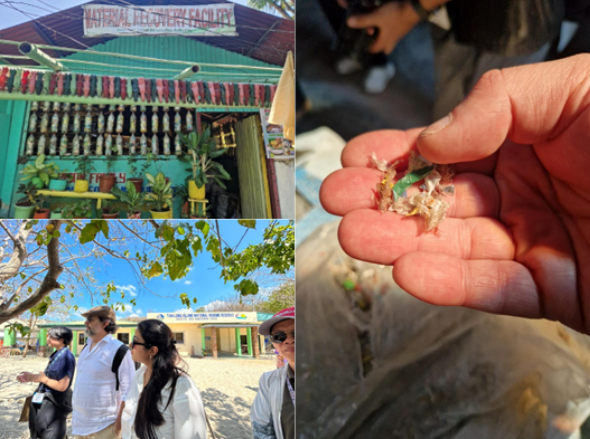
(Clockwise) Material recovery facility in Iloilo City, shredded plastic used for energy and Luca Nizzetto and Diya Chakravorty (NIVA) at Taklong Island National Marine Reserve. Photo: Emmy Nøklebye.
Way forward
The 3RproMar 3rd Regional workshop facilitated knowledge exchange and explored effective actions to combat plastic pollution in the ASEAN region. Bringing together National Focal Points for the INC process, industry representatives, academia, civil society, and dialogue partners, the workshop served as a collaborative platform to advance efforts in land-based marine litter prevention. Discussions spanned a range of topics including knowledge hubs, EPR, behavioral change, microplastics pollution, local and regional waste management initiatives, international frameworks such as the INC and just transition in the informal recycling sector.

Regional Knowledge Hub partners IKHAPP and ERIA working together in Iloilo City. Photo: Luca Nizzetto.
Looking ahead, this workshop’s outcomes are expected to influence future strategies for marine litter prevention in ASEAN, with the next workshop eagerly anticipated to further this important dialogue and collaboration.
Author: Diya Chakravorty
Edited by Luca Nizzetto, Hans Nicolai Adam and Emmy Nøklebye
